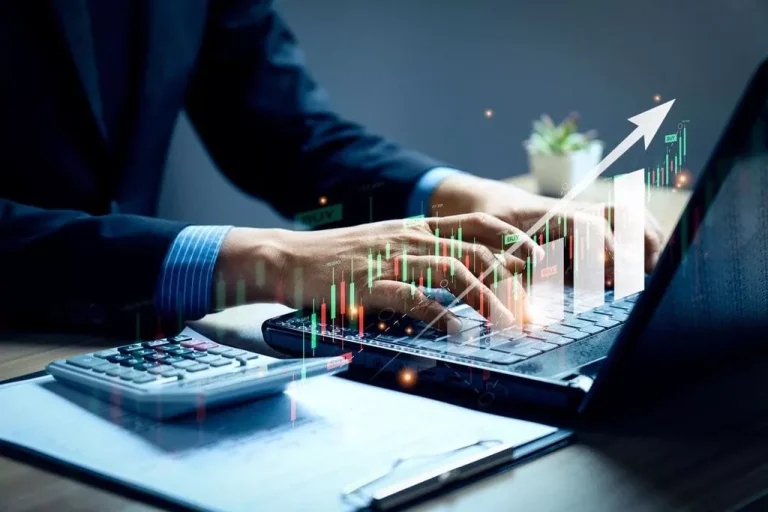They are regulated by the Financial Industry Regulatory Authority (FINRA), which is liable for administering exams for investment professionals. The Series 7 permits financial companies professionals to promote securities products, aside from commodities and futures. Of course, the language matches the medium, as the financial services area is a fancy world. To take part in that world, buyers usually interact the companies of a broker or vendor in some type or style, making a review of those terms an attention-grabbing place to start exploring.

Despite the centrality of the investor in the market, although, many traders can’t actually trade instantly themselves. When you go on your trading account and place a trade, for instance, you aren’t actually putting your order directly on a inventory exchange https://www.xcritical.in/. Instead you’re entrusting your order to a registered broker-dealer which executes the trade in your behalf in line with your directions. The phrase broker-dealer is used in U.S. securities regulation to explain stock brokerages as a outcome of they’re both broker and supplier.
Brokers
The Series 6 designation enables funding professionals to promote mutual funds, variable annuities, and insurance products. And the Series sixty three allows them to promote any type of securities in a selected state. Obtaining these licenses is the first step monetary services professionals need to take to get into the securities enterprise.
The name originates from the fact that they offer brokerage companies to investors and act as a broker or pursue their curiosity available in the market and act as a supplier. On the “dealer” facet of the equation, a broker-dealer makes a revenue from what’s called the bid-ask spread. They then promote the securities to another investor at a price greater than the shopping for value. The difference between the two costs is named the dealer’s unfold, and it represents the revenue that the broker-dealer makes on the transactions. Although many broker-dealers are “impartial” corporations solely concerned in broker-dealer providers, many others are enterprise units or subsidiaries of business banks, investment banks or funding corporations. Dealers also play a self-governing role, to make sure the proper functioning of securities markets.
Broker-dealers range in business dimension, from small and independent to large subsidiaries of large business and funding banks. For example, a broker can buy 50 shares from company ABC for $100 every and resell them in secondary markets for $101 per share and a profit of $1 per share. Note that it’s an imaginary instance as a result of $1 is a big quantity, and $0.15 is a fairly sufficient unfold per share. However, broker-dealers must execute their trades carefully to ensure full compliance with the laws of the SEC, the FINRA, and other regulatory our bodies. Moreover, a dealer might present the technological means to trade, such as the trading platform, varied charting and evaluation instruments, and crafting custom strategies to succeed and thrive in the monetary market. We don’t manage shopper funds or maintain custody of belongings, we help users connect with related monetary advisors.
It should not be construed as analysis or investment advice or a suggestion to purchase, promote or maintain any safety or commodity. Brokerage companies present tools and resources that enable buyers to make trades and seek financial recommendation. A broker-dealer may provide different services, similar to underwriting, market making, and custody.
Advertising Cookies And Web Beacons
Once the underwriting course of is completed and the securities are issued, the broker-dealers then become distributors, and their shoppers are usually the goal of their distribution efforts. In that effort, the financial advisors of the corporations then act as brokers to solicit their shoppers and recommend the purchase of the safety for their accounts. In this regard, the broker-dealers are facilitating the pursuits of the issuer, themselves (in the gathering of a distribution fee), and their clients, though their only contractual obligation is to the issuer. A broker-dealer (B-D) is a person or agency in the business of buying for and promoting securities for its own account or on behalf of its customers. The time period broker-dealer is utilized in U.S. securities regulation parlance to explain stock brokerages as a end result of most of them act as each agents and principals. Wirehouse brokers provide other monetary providers, together with financial planning, the place they help determine on which assets to speculate and how a lot to allocate.
- With the depth and complexity of trade offerings and the ever-changing nature of the trade itself, information is energy.
- Wirehouse brokers offer different financial companies, together with financial planning, where they help determine on which assets to invest and how much to allocate.
- The monetary trade defines a broker-dealer as a person, a company or other establishment that is engaged in securities trading on behalf of its customers or for its own account.
- A market participant who deals for you or themselves known as a broker-dealer, and they can be an individual or a financial institution serving a number of purchasers.
- And the Series 63 allows them to promote any type of securities in a particular state.
Some costs are a set quantity per transaction, a portion of general revenues, or a mix of both. Additionally, account maintenance charges normally stay close to zero.5% yearly primarily based on how many assets their brokerage presently holds. Since most stock brokerages perform as agents and principals, the time period broker-dealer is used to outline them when it comes to U.S. securities legal guidelines. Both sorts supply completely different services tailored to develop their client’s capital and optimise their return on funding. Therefore, you could choose according to your business measurement, type, and objective. Brokerage fees differ broadly depending on the type of broker-dealer and the sort and dimension of company they work with and represent.
What Is A Broker-dealer, And What Do They Do?
Wirehouses like Morgan Stanley and Wells Fargo, discount brokerages like Charles Schwab and TD Ameritrade, and impartial corporations like LPL Financial and Raymond James are a couple of of essentially the most well-known broker-dealers. When executing orders on behalf of its clients, a brokerage works as a dealer or agent. When buying and selling for its personal account, a brokerage serves as a vendor or principal. Registered funding advisors may charge greater fees than a traditional broker-dealer. However, they have the next potential to deliver better return on funding and supply entry to unique information and updates that the general public may not be aware of, giving their purchasers a competitive benefit.

Independent broker-dealers additionally supply companies such as monetary planning and portfolio administration. Compared to bigger broker-dealers, these corporations are often more frivolously regulated as a result of their dimension. This type of broker offers a restricted service unique to executing market orders and a few advisory companies while providing a set mounted range of tradable instruments.
Online brokers are maybe the best example of this association, as buyers can go online, choose a safety, and buy it with out ever speaking to a different individual. Discount brokers offer an inexpensive method to buy securities for traders who know precisely what they wish to buy. “Broker” and “supplier” are U.S. regulatory terms and, as is commonly the case with legal phrases, they do not appear to be very intuitive to many individuals.
IBKR does not make any representations or warranties concerning the past or future performance of any financial instrument. By posting materials on IBKR Campus, IBKR isn’t representing that any specific financial instrument or trading strategy is acceptable for you. Information posted on IBKR Campus that is provided by third-parties does NOT represent a advice that you need to contract for the services of that third party. Broker dealers are corporations that are registered and permitted to purchase and promote securities. Broker-dealers can be different in measurement, from small independent companies to large funding banks. Brokers facilitate shopper transactions by sourcing and acquiring stocks from numerous sources, together with their very own provide, other broker-dealers, and outdoors distributors.
Some of those dealers, generally known as primary sellers, also work closely with the us Primary sellers are obligated to participate within the public sale of debt issued by the U.S. authorities. By bidding on Treasury bonds and other securities, these sellers facilitate trading by creating and sustaining liquid markets. They assist within the easy functioning of home securities markets as properly as transactions with overseas buyers. Any information posted by staff of IBKR or an affiliated firm relies upon data that’s believed to be reliable. However, neither IBKR nor its associates warrant its completeness, accuracy or adequacy.
Understanding A Broker-dealer
Security is a type of economic instrument that holds value and can be traded… Broker-dealers differ from Registered Investment Advisors regarding functions, skills and requirements, and fees. RIAs are required to register with the SEC or State Securities Regulator depending on the worth of belongings underneath administration. You should turn into a Securities Investor Protection Corporation (SIPC) member. SIPC assists investors in receiving compensation if the investment company goes bankrupt or turns into solvent.

For novice buyers or these too busy to plan for themselves, full-service brokers supply an array of useful providers and data. For many investors, the financial companies business is a strange and mysterious place full of a language all on its own. Terms like “alpha,” “beta,” and “Sharpe ratio” don’t precisely roll off the tongue, nor does their use by trade insiders serve to carry the veil and make issues less opaque. RIAs charge clients a share of their belongings underneath their administration, while others bill a flat or hourly fee for the advice they supply.
Until lately, large broker-dealers generally had affiliated investment advisor corporations. This saved the completely different roles clearly delineated and minimized potential conflicts of curiosity. Your advisor recommends you purchase a stock, you say sure, your advisor places in the order with their affiliated broker-dealer.
